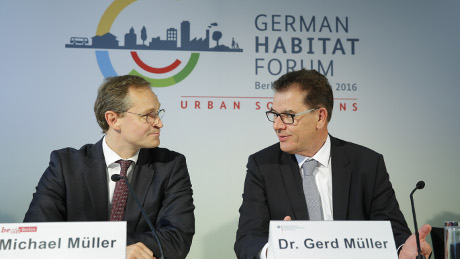How can Ethiopian cities bounce back from COVID-19 with active mobility at the forefront?
by Seble Samuel and Iman Abubaker Photo by AP/Mulugeta Ayene Pedestrianised streets, pop-up cycling lanes and non-motorised transport infrastructure have been critical elements of cities’ pandemic recovery strategies. But in Ethiopian cities, where walking and cycling are dominant modes of …
Transport needs to be a key topic at the One Planet Summit
On 12 December 2017, the government of France is hosting the One Planet Summit, to celebrate the two year anniversary of the Paris Agreement.
SLoCaT Analysis of 150 Transport Emission Methodologies and Tools Shows Strong Potential to Measure Carbon Reduction and Other Benefits
Measuring CO2 in transport projects and programs is essential to driving further action on transport and climate change, through quantification of the potential contribution of low carbon transport infrastructure and services in comparison to more carbon-intensive investments. Since it can be difficult to quantify positive impacts from complex transport systems in comparison to fixed energy infrastructure, the sustainable transport sector has traditionally received less attention than other sectors from sources of climate finance.
German Development Minister Müller announces a new mobility initiative in support of global transformation of transport and traffic systems

In view of the upcoming global human settlements conference Habitat III, to be held in Quito, Ecuador, in October, Federal Development Minister Gerd Müller and the Mayor of Berlin, Michael Müller, today inaugurated the German Habitat Forum.
UNFCCC Executive Secretary Calls to Unite the Transport Sector to Push towards Climate Neutrality
 The Executive Secretary of the United National’s Framework Convention on Climate Change (UNFCCC), Cristiana Figueres, has called to reunite the transport sector worldwide in the push towards climate neutrality and connect the patchwork of policies we can expect from at least 189 different national climate action plans designed for different national circumstances.
The Executive Secretary of the United National’s Framework Convention on Climate Change (UNFCCC), Cristiana Figueres, has called to reunite the transport sector worldwide in the push towards climate neutrality and connect the patchwork of policies we can expect from at least 189 different national climate action plans designed for different national circumstances.
Zero Draft of the New Urban Agenda while Encouraging, Leaves Room for Improvement on Transport
Shanghai, May 16th 2016
The Partnership on Sustainable, Low Carbon Transport (SLoCaT) conducted an analysis on the Zero Draft of the New Urban Agenda (NUA)- the expected outcome document of the Habitat III Conference- from the perspective of sustainable transport.
Clean Air Asia Report: China's Air Pollution Policies Shows Initial Progress in 74 Cities but Still Have A Long Way to Go
The implementation of the Chinese “Air Pollution Prevention and Control Action Plan” (the ‘Action Plan’) has received much attention since it was published in September 2013. Clean Air Asia released the report, “China Air 2015: Air Pollution Prevention and Control Progress in Chinese Cites<
Measuring, reporting and verifying emissions in the transport sector
While the transport sector is a key promoter of development and economic growth, it also causes significant GHG emissions. Therefore, it is crucial to address the transport sector when planning or implementing mitigation action. But how to assess the impact of transport based mitigation efforts?
